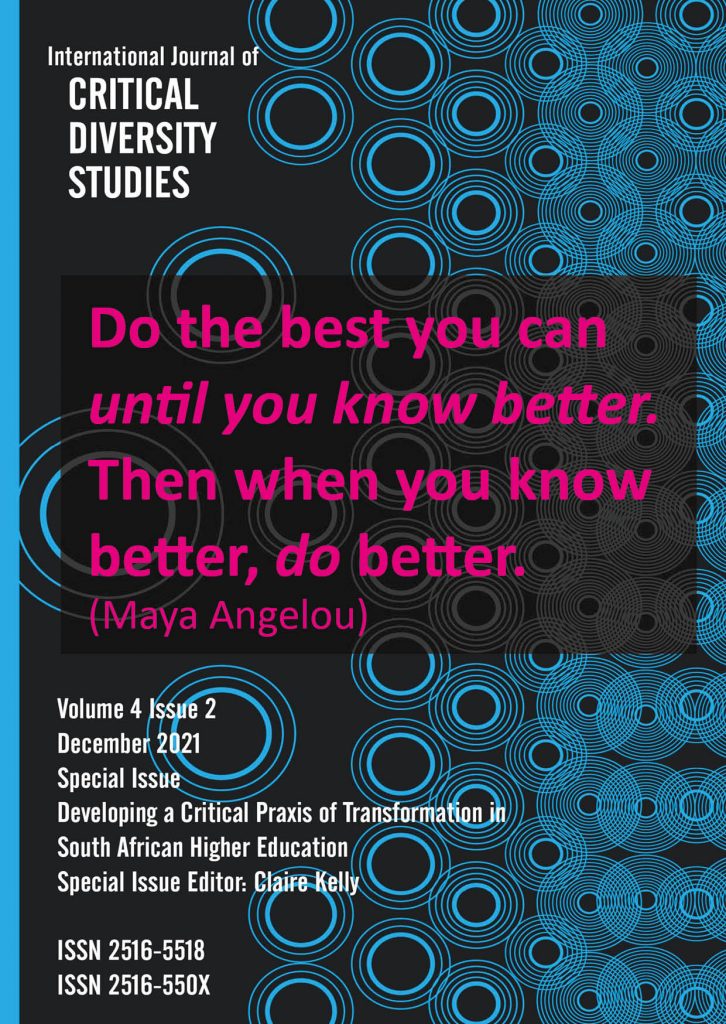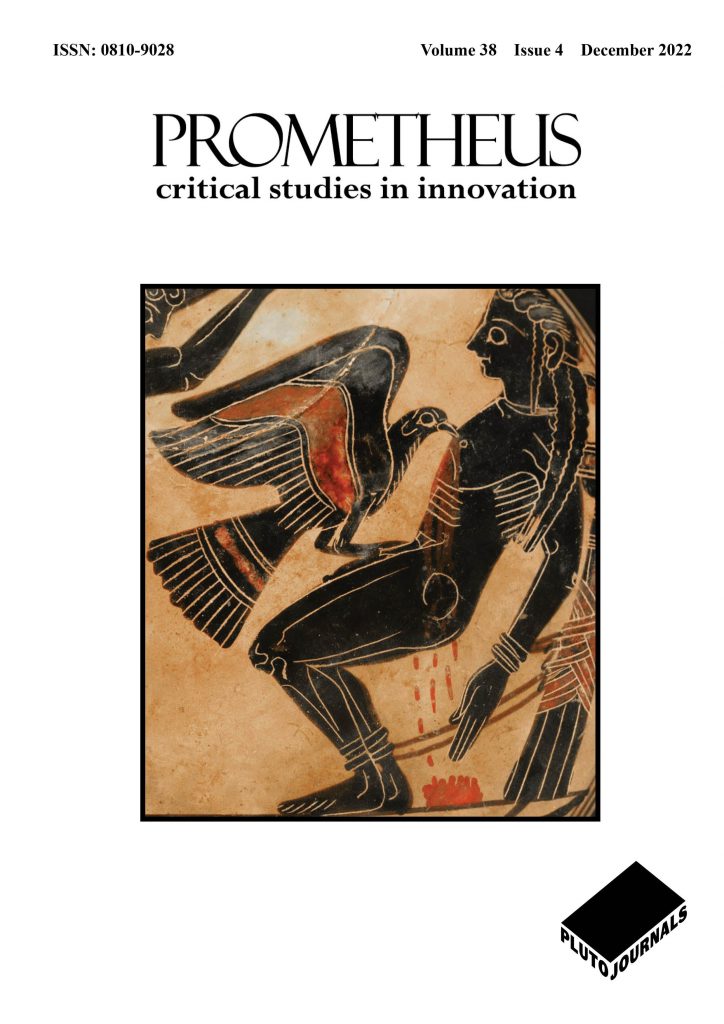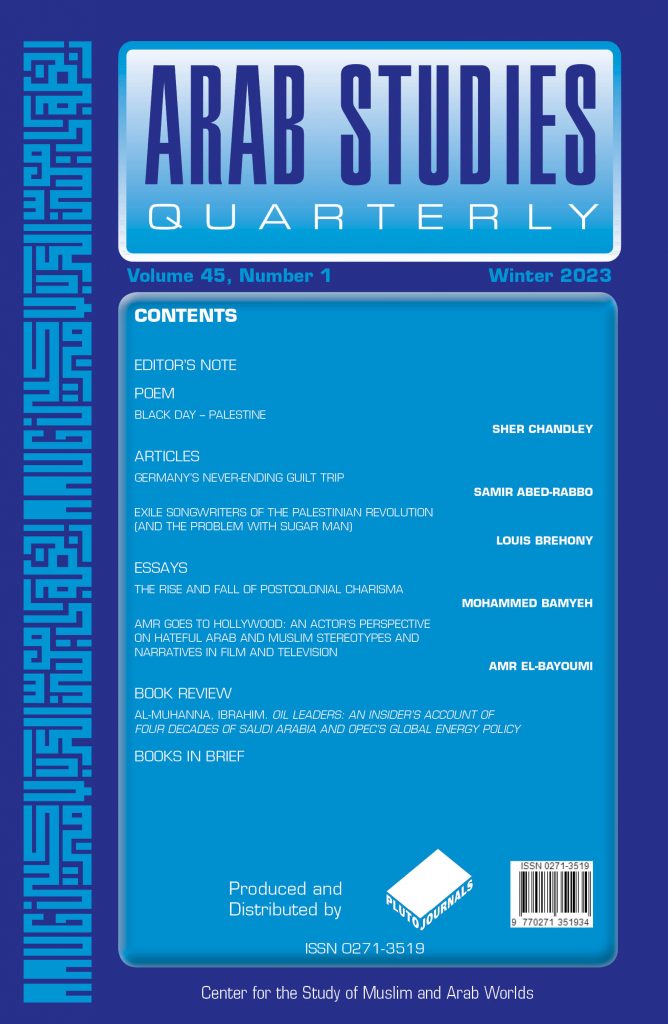Theory, Practice and Psychedelic Substances
 The International Journal of Critical Diversity Studies is run by Wits Centre for Diversity Studies (WiCDS) at the University of the Witwatersrand, South Africa. It provides a platform for critical engagement with hierarchies of power that create and sustain privilege and oppression along axes of difference. Claire Kelly, the editor of this special edition (volume 4, issue 2) dedicates it to the optimists, activists and troublemakers so we can “know ourselves, our challenges and our work better, so that in future, our best may be better.”
The International Journal of Critical Diversity Studies is run by Wits Centre for Diversity Studies (WiCDS) at the University of the Witwatersrand, South Africa. It provides a platform for critical engagement with hierarchies of power that create and sustain privilege and oppression along axes of difference. Claire Kelly, the editor of this special edition (volume 4, issue 2) dedicates it to the optimists, activists and troublemakers so we can “know ourselves, our challenges and our work better, so that in future, our best may be better.”
Khan, Barnes and Alves share the complexities of implementing two processes (an Inclusivity Survey and Transformation Benchmarks) to chart and track transformation, inclusion, and diversity at the University of Cape Town.
Bopape also examines the complexity of advancing “transformation” in higher education in terms of tangible actions and measurables, specifically in the area of institutional culture. Practitioners from Stellenbosch University’s (SU) Equality Unit, examine the limitations of the current policy, structures and practices to eliminate gender based violence on Stellenbosch University Campus.
Mangolothi and Mnguni’s paper examines the intersectional nature of workplace bullying in higher education. Jess Auerbach explores the role of technology and developing “technological capacities” as imperative for transformation. Finally, Margaret Blackie provides wonderfully illustrative examples from the field of chemistry to illustrate the social and political construction of scientific knowledge. She argues that all universities should “actively seek to increase diversity for the sake of the enhancement of the science”.

In the latest issue of Prometheus (volume 38, issue 4), Söderberg, explores the renaissance in the use of psychedelic substances and the data that users generate. With the legal use of these substances in prospect, users have shown new interest in them. So has the pharmaceutical industry, though its interest is in what users of these drugs know about using them. In the hands of drug companies, data garnered from users is readily protected by patents. This is certainly user innovation of a sort, but not the sort that has been considered in innovation literature. Oyewo, Tanvir Hussain and Simbilook look at the challenges of implementing management accounting innovations, paying particular attention to strategic management accounting (SMA) in Nigeria.

In volume 45, issue 1 of Arab Studies Quarterly, Samir Abed-Rabbo’s article “Germany’s Never Ending Guilt Trip” argues that the secret relationship between Germany and the Zionists whose goal was to establish a settler-colonial entity in Palestine “is in clear violation of German law.” Louis Brehony explores the Exile Songwriters of the Palestinian Revolution (the Problem with the Sugar Man) and looks at the relationship of the songwriters/musicians to their respective “political and social goals”. Sher Chandley’s poem Black Day – Palestine commemorates the murder and funeral of journalist Shireen Abu Aqleh.
Stay up-to-date with the latest research highlights by signing up to the Pluto Journals newsletter!

